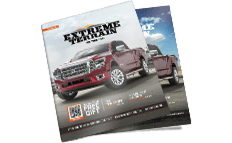Aftermarket Parts for 2018 Toyota 4Runner Aftermarket Automotive Parts for your 2018 Toyota 4Runner span a multitude of categories, each with unique functions, materials, manufacturing processes, quality standards, and compatibility considerations. Engines, exhaust systems, braking systems, electrical components, suspension, body and exterior parts, form the crucial categories of automotive components that propel, slow, control, secure, and aesthetically determine the look and feel of your 4Runner.
Engines and Exhaust Systems
Engines are the powerhouse, usually cast from iron or aluminum, forged through high-pressure die-casting, and honed to exacting precision. Whether upgrading for performance or simply replacing worn components, consideration must be given to the compatibility of parts to ensure smooth engine operation, power output, and the efficiency of the fuel-air mixture. Exhaust systems, from manifold to muffler tips, significantly impact engine performance too. Crafted from corrosion-resistant steel or titanium alloys, exhaust components undergo extensive welding, bending, and flanging processes during manufacturing for optimal heat resistance and durability.
Braking Systems
Braking system components are engineered from materials including cast iron, steel, or carbon-ceramic composites, under stringent quality standards to ensure reliable stopping power. The age of the vehicle, its mileage, and the driver's typical operating conditions – from gentle city driving to intense off-road adventures – impact part selection. For instance, a 4Runner maintained predominantly for city use will require different brake pads compared to a frequently off-road driven one.
Electrical Systems
The vehicle's electrical systems, encompassing parts such as batteries, spark plugs, sensors and wiring, are typically made of a blend of metals, plastics, and composite materials. These ensure durability and conductivity, manufactured via processes involving extrusion, injection molding, and stamping. Remember, a vehicle's health and performance depend on the accurate functioning of these electrical components, considering factors such as vehicle age, mileage, operating conditions, and maintenance history.
Suspension System
A 4Runner's suspension system, with parts such as shock absorbers, springs, and control arms, bearing roles of comfort, handling, and safety, are produced from high-strength steel or aluminum and put through forging or casting processes. Their selection too is determined by driving conditions – factors such as desired ride quality, load bearing needs, and off-roading requirements should be considered.
Body and Exterior Parts
Body and exterior parts, covering items from bumpers to roof racks, are generally fabricated from metals, plastics, or fiberglass, enduring processes like stamping, molding, or extruding. Here besides technical requirements, aesthetics also play a role.
Compatibility and Selection Considerations
Remember, replacing or upgrading any component must take into account the vehicle's age, overall mileage, current operating conditions, and its maintenance history. Compatibility considerations are vital, not only in the context of the specific make and model – which in this case is the 2018 Toyota 4Runner – but also the sub-model, engine size, and drive type (2WD or 4WD). Most aftermarket options that conform to OEM standards or even exceed them. Understanding these details will help you make well-informed decisions for optimal vehicle performance, efficiency, and safety. Emphasize not only proper selection but also correct installation and regular maintenance to ensure longevity.

















